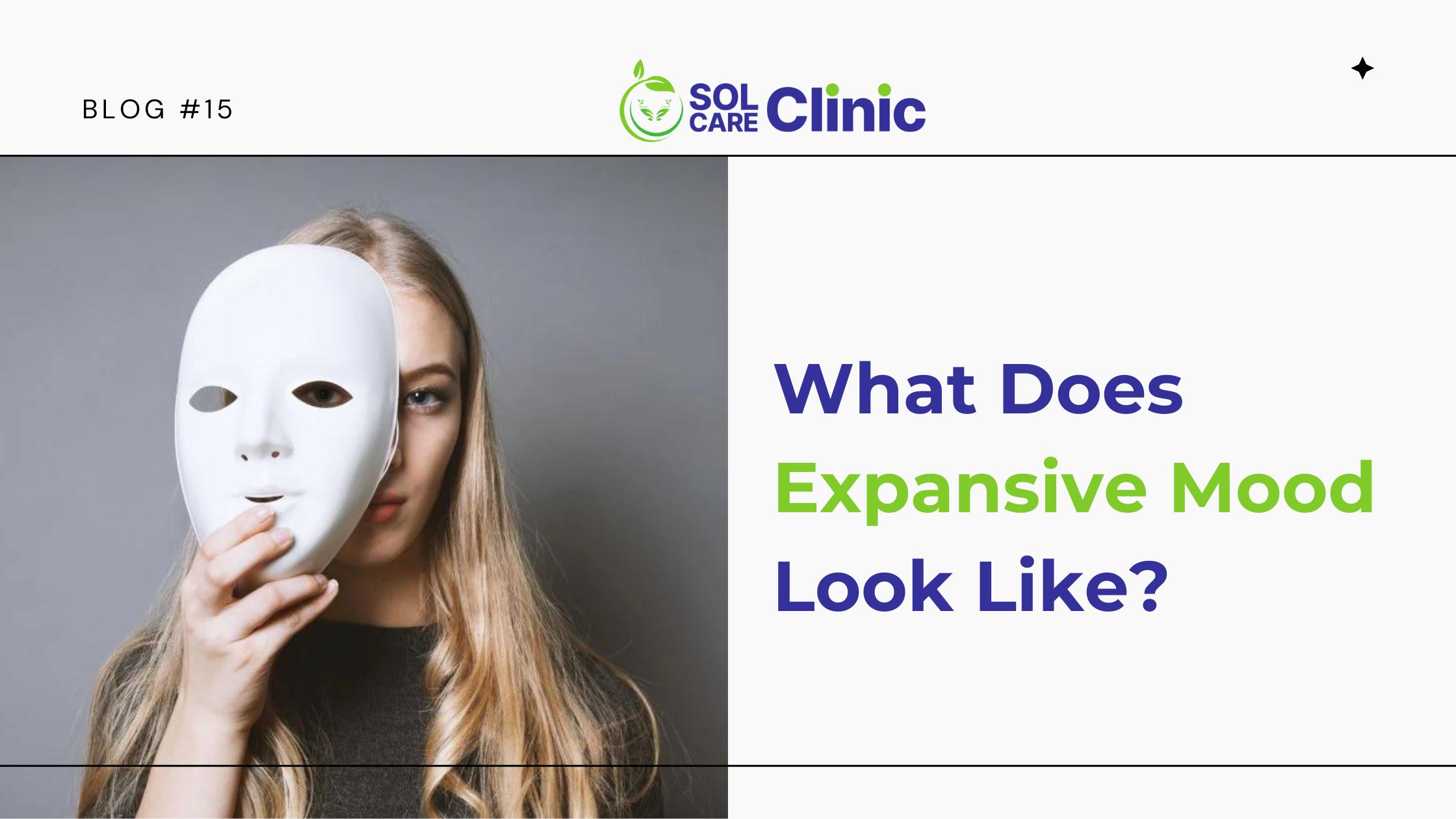An expansive effect is a symptom of a bipolar problem that highlights outrageous or raised temperaments that might keep going for extended times of time. In a few cases, expansive mood may co-happen with other emotional well-being conditions.
As per the Diagnostic and Statistical Manual of Mental Disorders, 5th edition, text revision (DSM-5-TR), an expansive mood in bipolar I disorder might prompt careless ways of behaving “strange for the individual, even though these exercises are probably going to have horrendous results. Understanding an expansive effect as a side effect of bipolar issues might assist you with overseeing hyper episodes that emerge. Knowing the indications of an expansive mood can be helpful for those with other psychological health conditions.
Expansive Mood and Full Range Affect
The full range of broad effects refers to an individual’s ability to express emotions in healthy, typical, or expected ways. When it comes to expansive moods, an individual typically displays intense emotions, particularly related to happiness, joy, or sadness. The signs of an expansive mood include:
- Extreme friendliness
- Heightened joy or glee
- Expressions of grandeur
- Exaggerated behaviors
- Financial extravagance
- Believing oneself to be a deity or god
The primary characteristic of an expansive mood is its detrimental impact on an individual’s functioning within the community. For instance, an individual experiencing delusions of grandeur may abruptly quit a job or terminate a relationship.
Other symptoms of bipolar disorder during manic or depressive episodes can include:
- Feeling hopeless or sad
- Losing interest in activities that usually bring joy
- Sleep-related issues
- Feeling exhausted or fatigued
- Feeling guilty or worthless
- Difficulty focusing
- Negative thoughts about the future
- Suicidal thoughts or tendencies
The Impact of Expansive Moods on Daily Life
Expansive moods can significantly affect an individual’s ability to function effectively in their daily life. Here are some ways these moods manifest in various aspects of life:
-
Work and Professional Life
Self-importance and impulsiveness related to expansive moods can prompt improper working environment choices. Individuals could incautiously leave their employment, begin an aggressive task without arranging, or estrange partners with their misrepresented identity significance.
-
Relationships
Personal relationships can suffer due to erratic and exaggerated behaviors. Friends and family may find it challenging to cope with the individual’s excessive demands for attention or their unpredictable mood swings.
-
Financial Stability
The tendency towards financial extravagance can jeopardize financial stability. Reckless spending and poor financial decisions can lead to debt and economic crises, further complicating the individual’s life.
-
Community and Social Interactions
Expansive moods can reduce an individual’s ability to function within their community. Their extreme friendliness might be perceived as intrusive, and their exaggerated behaviors can lead to social isolation or conflicts.
Expansive and Elevated Moods in Bipolar Disorder
Expansive moods can be expressed as emotional expressions in which an individual with bipolar disorder is unaffected by the thoughts or feelings of others; the mood is unchanged by the way people react.
Some would describe expansive moods as “feelings of superiority, grandiose, or self-importance,” but even when that is true, to be genuinely expansive, the expression will not be restricted by fear of others’ reactions. A good definition is euphoria and grandiosity at the same time.
Are they the same?
Elevated moods are like having a perfect day but are unrelated to circumstances. For example, you might expect someone to be in a good mood if they got a promotion. But, as related to bipolar disorder, it just kind of came out of nowhere. However, it is said that ‘severely’ elevated moods can also be seen with feelings of grandeur.
Both are described as symptoms of manic episodes. Often, you will see the two terms used interchangeably, and there is not much difference unless there are no feelings of grandiosity. In such cases, I would say it is elevated, not expansive. On the opposite end, there are paranoid delusions. Both paranoia and grandiosity are typical in bipolar disorder.
When to Seek Help?
Assuming you or somebody you know is encountering side effects of an expansive mood of mind, looking for proficient help is significant. Early intervention can forestall the escalation of side effects and work on personal satisfaction.
Here are a few signs that show the requirement for proficient help:
-
Persistent and extreme mood swings
If the mood swings are severe and interfere with daily functioning, seeking help is essential.
-
Impulsive or reckless behavior
Engaging in risky activities, financial extravagance, or making significant life decisions impulsively are red flags.
-
Difficulty in maintaining relationships
If mood-related behaviors strain relationships with family, friends, or colleagues, professional support can help.
-
Suicidal thoughts or tendencies
If there are any signs of suicidal ideation, immediate help from a mental health professional is critical.
Conclusion
Understanding expansive moods is essential to overseeing bipolar disorder effectively. Perceiving the signs and separating between expansive and elevated moods can prompt better administration procedures and work on personal satisfaction. Assuming you or somebody you know is battling these side effects, provide proficient assistance. With the right help and treatment, people with bipolar disorder can lead satisfying and valuable lives.





